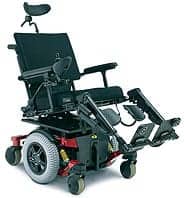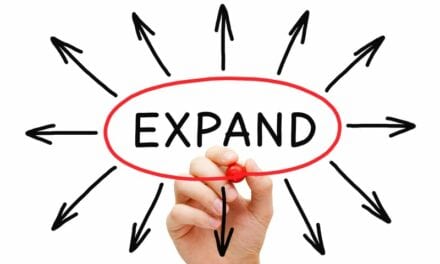The American Orthotic & Prosthetic Association (AOPA), Washington, DC, reports that more than 100 small health care providers have already shut down because of delays, and that an estimated backlog of 1.5 million appeals are stalled.
AOPA reports that Medicare reimbursement appeals by healthcare providers are increasing at a rate of 15,000 a week. Furthermore, the organization states in a media release, with handling of the appeals delayed from the 90 days required by law to 3 years or longer, the Centers for Medicare & Medicaid Services (CMS) could save $12 million during the course of a decade by postponing reimbursement of disputed payments until the disputes are resolved. This, the AOPA reports, is according to a new analysis from Dobson DaVanzo & Associates (Dobson DaVanzo) commissioned by the AOPA. The report is available online here.
AOPA said that a major side-benefit of such a step would be to relieve the often unbearable financial strain on small health care providers – such as orthotic and prosthetic firms – that are unable to deal with being bombarded by the uncertainty resulting from long-delayed Recovery Audit Contractor (RAC) appeals for disputed Medicare payments.
Charles Dankmeyer, president of AOPA, states in an AOPA media release, “The truth is that there is a real and growing mess today at Medicare when it comes to Recovery Audit Contractor appeals that are stacking up in the system and with no relief in sight. Legitimate Medicare audits are a necessary part of the federal government discharging its responsibility to protect federal moneys and to fight fraud and abuse.
“However, the current RAC system has flaws, starting with the fact that RAC auditors are incentivized to maximize their assertions of provider errors in order to collect a ‘bounty’ of up to 13% for every dollar clawed back. The result has been an out-of-control surge in audits and a worsening situation for small health care providers – including orthotic and prosthetic providers – that are unable to survive the cash flow nightmares in what is a hostile environment, as they wait years for their day in court where odds say they’ll likely win, but sometime too late to keep their businesses afloat.”
Study co-author Audrey El-Gamil, senior manager, Dobson DaVanzo, said, “Our study found that the appeals system at the Administrative Law Judge (ALJ) level is broken. As a result, there are two main consequences. First, the government currently pays out almost one-third of its total recouped funds for improper Medicare payments in the form of interest payments to successful provider appeals. The delay in the review process – about 30 months – significantly increases the amount of these interest payments. Second, providers have their money withheld by the government for the duration of the review, which leads to financial uncertainty. A policy change could mitigate the cost to the government and reduce the financial uncertainty faced by providers.”
AOPA reports that it is formulating a legislative policy that would change the timeline for when provider payment for claims under review would need to be submitted. Specifically, the recoupment date for RAC audits would be delayed until after the ALJ hearing and determination. Under this policy, CMS would not be holding providers’ payments while the ALJ hearing is in process. Therefore, CMS is not accruing interest to be paid to providers with favorable (or partially favorable) determinations.
The focus of Dobson DaVanzo analysis is on orthotic and prosthetic (O&P) RAC audits that reach Level 3 appeals. The analysis also considers the Medicare savings if all Part B services were included in the policy. On average, O&P appeals in 2013 represented an average Medicare payment of $35,338. Based on OMHA data, closed appeals for O&P services have a success rate of 51.9%. Therefore, CMS would no longer be holding the provider’s money for months or years as the appeals were pending, and would save money by no longer needing to accrue and pay interest for about half of all appeals.
Under this proposed policy, CMS would not recoup payments from providers for possible overpayments until the ALJ disposition is determined. This would eliminate the need for CMS to make interest payments, estimated to be $7.57 million for O&P services over 10 years or $12.37 million for all of Part B services in the appeal system (including those yet to be recognized by OMHA). Furthermore, providers with successful appeals would not have their resources withheld by CMS for upward of 30 months before they received their repayments, according to the Dobson DaVanzo analysis.






